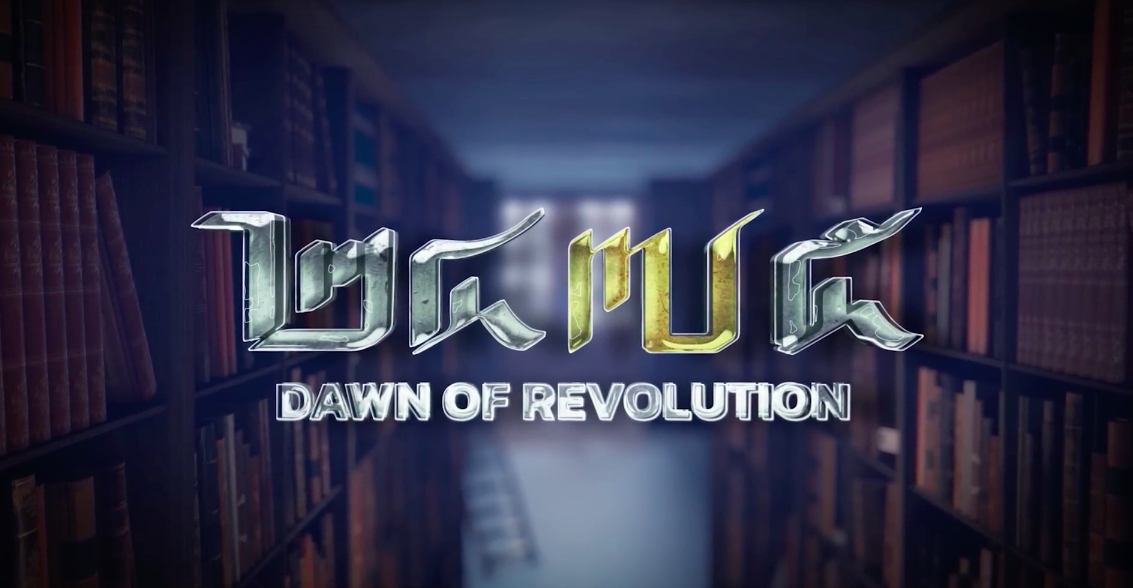
Thailand’s Political History, by B.J. Terwiel, is an authoritative history of Thai politics that challenges Thailand’s royalist-nationalist historical narrative. Terwiel argues, for example, that Rama VII is traditionally portrayed as “the king who wanted to present his people with a true democracy but was forestalled by the coup d’état of 1932.” As he demonstrates, this is a false characterisation, though it remains persistent: it can be seen most recently in the new feature-length animation 2475 Dawn of Revolution (๒๔๗๕ รุ่งอรุณแห่งการปฏิวัติ). The film (directed by Wivat Jirotgul) dramatises the 1932 coup launched by Khana Ratsadon, which introduced nascent democracy to Thailand, though the story is told from a royalist-nationalist perspective.
2475 begins by summarising Rama VII’s attitudes prior to the 1932 coup: “King Rama VII believed in the ideas of the parliament system and the constitution.” This is in direct contrast to Terwiel’s book, which points out that “the king ruled out a parliamentary form of government”. The film credits Rama VII as an instigator of democratic reform, intent on “giving the constitution to the people of Siam.” This interpretation — in which democracy is bestowed as a generous royal gift — is again at odds with Terwiel, who makes clear that Rama VII “indicated that he himself was firmly of the opinion that Siam was not ready for a representative form of government.”
The film’s framing device features three modern-day students, one of whom livestreams an anti-government protest, who go to the library to research a history project on the 1932 coup. The message — that today’s students should read more about Thai history — is both condescending and inaccurate, as history books by Nattapoll Chaiching, amongst others, are bestsellers. The film’s ending is particularly dismissive of the student characters: they visit Democracy Monument, and observe that democracy “dies over and over again, it gets torn apart with coup d’état so many times.” At which point, they burst into giggles, as though — despite their research and their previous political activism — they have no interest in the subject whatsoever.
2475 begins by summarising Rama VII’s attitudes prior to the 1932 coup: “King Rama VII believed in the ideas of the parliament system and the constitution.” This is in direct contrast to Terwiel’s book, which points out that “the king ruled out a parliamentary form of government”. The film credits Rama VII as an instigator of democratic reform, intent on “giving the constitution to the people of Siam.” This interpretation — in which democracy is bestowed as a generous royal gift — is again at odds with Terwiel, who makes clear that Rama VII “indicated that he himself was firmly of the opinion that Siam was not ready for a representative form of government.”
The film’s framing device features three modern-day students, one of whom livestreams an anti-government protest, who go to the library to research a history project on the 1932 coup. The message — that today’s students should read more about Thai history — is both condescending and inaccurate, as history books by Nattapoll Chaiching, amongst others, are bestsellers. The film’s ending is particularly dismissive of the student characters: they visit Democracy Monument, and observe that democracy “dies over and over again, it gets torn apart with coup d’état so many times.” At which point, they burst into giggles, as though — despite their research and their previous political activism — they have no interest in the subject whatsoever.

2475’s credits include a long list of individual donors, some of whom gave as little as ฿100 each. The bulk of the budget was provided anonymously, though Prachatai reported earlier this week that the film’s production company was paid almost ฿4 million by the army for other projects between 2020 and 2022. There is also an autographed comic book version of 2475, adapted from the film with illustrations by Rawin Jarureangsri. A graphic novel about the 1932 revolution, also called 2475, was published earlier this year, and tells the story from a liberal democratic perspective.
